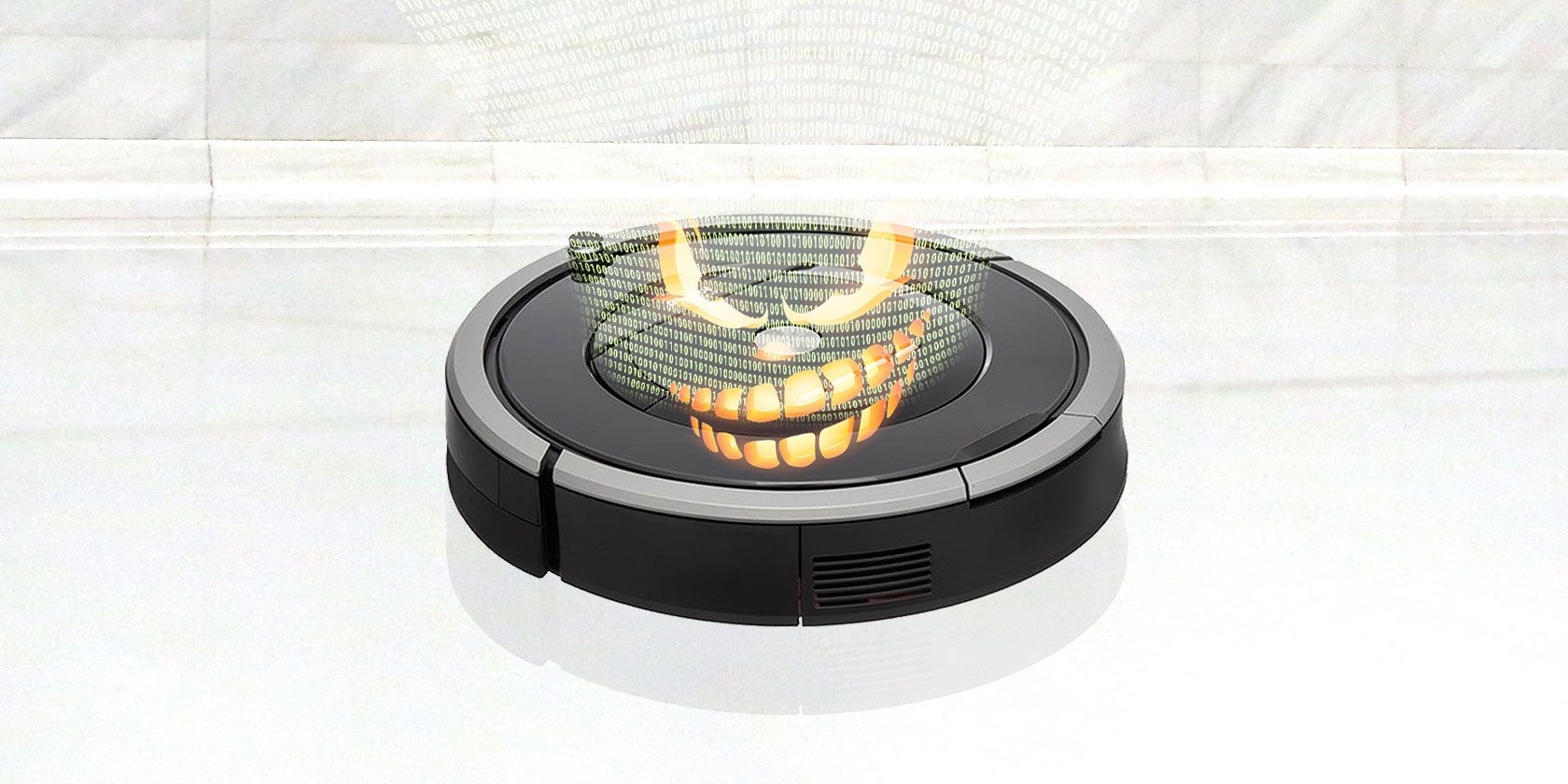Yes, smart homes are fabulous. They can save us money, time, and frustration. But let's talk about the elephant in the room: privacy.
How much invasion of privacy is too much? Where do you draw the line? The debate reared its head again in the summer of 2017 thanks to the news that Roomba devices are mapping homes, allowing the parent company to sell the data to third-parties.
Join us as we look at what data is being collected, how it's being used, and whether there's a benefit to the end user.
What Data Is Collected?
In short: everything. If you have a fully kitted out smart home, with technology in your kitchen, bathroom, car, garden, and everywhere else, there is very little companies don't know about you.
I'm not exaggerating. Think of any piece of information, and it's being logged. The time you generally return home from work? Your garage door sensors know that. How many times you go to the loo in the night? Your smart bed learned that two days after you bought it. Your preferred method of applying makeup? The smart mirror has you covered. Your favorite food? The fridge knows.
If these companies clubbed together (and who says they're not already?), they would know you better than you know yourself.
The Benefits of Data Collection
The sheer amount of data collected is definitely spooky, but it's not without a purpose. Almost all devices need to learn about you and your habits to allow them to function to the maximum of their capabilities.
What good is a smart mirror if it can't give you advice about the way you look? How useful is a smart bed if it can't use your sleep data to help you have a more restful night? A child tracker without location logging just becomes a fancy bracelet, and so on.
Even at the most extreme end of personally identifiable information, the argument holds true. Smart medical devices are explicitly designed to track hugely private data and send it to your doctor or nurse. Without the ability to do so, they're useless.
Ultimately, if you've decided to join the smart home revolution, there's an implicit trade-off. It's one which most users are prepared to accept.
Advertising and Profit
This is the biggest gripe of smart home users and is the most significant flipside to all the perceived benefits of data logging.
In all the positive examples I've discussed, it's hard to argue against the benefits a user receives. If all the data never went any further than a select group of intended recipients, most people probably wouldn't have a problem. But that's not the case. Almost all the data that smart devices collect is also being used by the parent company to make money.
Of course, the data is not necessarily personally identifiable, but that's not the point.
The Roomba
Let's take the example of Roomba. Depending on the model, you might have paid as much as $900 for your device. Given the company has sold more than 17 million units and that robot vacuums are a rapidly growing sector that already represents more than 20 percent of the worldwide vacuum market, do Roomba and its competitors have a right to profiteer further?
Clearly, $900 isn't cheap. But let's look at it from the companies' standpoint. They might argue the profit they make from your data is subsidizing the cost of the device in the first place.
The gains are built into their business models. Without data collection, the smart home devices we all love would either be much more expensive or just not exist.
To return to my original question: where do we draw the line? If Roomba collected data about your usage habits and used it to improve its product line, many people might begrudgingly accept it. But selling your home's floor plan? It feels invasive.
Different Devices, Different Expectations
Some readers might dismiss my protestations about Roombas. Personal data is personal data; it doesn't matter what form it takes. Others may be vigorously nodding their heads in agreement with my argument.
But the Roomba is just one example. Some of the people who think a Roomba's data collection techniques are invasive probably have no issues with other devices.
What about Siri? If you use Apple's personal assistant regularly, it probably knows everything from where you work to what you ate for breakfast.
Amazon Alexa is another example. Although it only activates when it hears the keyword, when it's listening to you, it can pick up all sorts of other data. That includes people talking in the background, TV programs you're watching, music you're listening to, and lots more. It's certainly more revealing than a Roomba floor plan.
Of course, Siri and Alexa users aren't stupid. They know the services collect and use personal data. But it's a trade-off they're willing to accept. If a Roomba or a smart thermostat suddenly started recording your conversations or tracking you via GPS, there would (rightfully) be an outcry.
The Crux of the Matter
Using the examples of Roomba, Siri, and Alexa, we can get to the crux of the matter.
A company has to be aware of its core purpose. Alexa and Siri are designed to be personal assistants, and a user, therefore, accepts the services will collect data about their lives. Similarly, a Roomba is a cleaning robot; it's reasonable to expect it to collect data that helps it fulfill its purpose.
What's not reasonable is when the data collection only serves the company and has no benefit to the user.
For example, if Alexa tried to learn which TV shows you watch through background noise analysis, it would be a step too far. The data wouldn't help you order your groceries or listen to the news headlines. It would solely serve to help Amazon make money by showing you targeted advertising.
Similarly, Roombas mapping your floor is understandable. They use the data to plan their route around your home and learn which parts of your rooms need the most attention. But selling the data to third-parties crosses the line. There are no obvious benefits to you as a user from their actions.
It appears that companies increasingly view their devices as a way to make money off you. Are they really interested in providing a service, or the gadgets merely loss leaders that let the company get inside your home?
Where Do You Draw the Line?
Ok, let's summarize my arguments. The very nature of smart home devices means they have to collect data about you. Without doing so, they're useless. But if you've paid a lot of money for a device, is it reasonable to expect the vendor to use it as a profit-making tool? I'd argue the answer is definitely "no."
You might disagree with me. Perhaps you think companies have a right to make money from the services they're providing?
Whether you agree or disagree, I want to hear from you. You can leave all your opinions in the comments section below.



